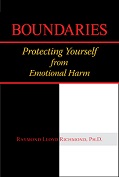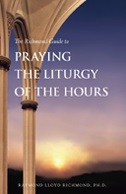|
|
|

If possible, regarding
your excellent summary of the matter of Anger Without Sin, would
you please explain the difference between the psychological use versus Biblical use of the word
anger in terms of “God relenting in His anger to punish”, “Jesus becoming
angry in overturning the tables in the Temple”? Also, could you explain how the motive for
“zeal for God’s honor and glory” versus the “desire for revenge” should
be noted?
 |
 he fullness of God is incomprehensible, even
to the angels, and so any human attempt to describe God’s being can be only a far distant
approximation of the truth. Through the ages, we have been given glimpses of divine nature:
throughout sacred history the Old Testament prophets and ultimately Christ Himself have deepened
our understanding of God. But before Christ, when God literally took human form to reveal the
depth of His love and mercy, the human conception of God was limited to anthropomorphic
description; that is, God was described in the human terms with which the human mind knew
itself. Hence, in the Old Testament, God is described as acting with ordinary human emotions
and behaviors. In contrast, Christ—even in His human nature—always exemplified the purity of
divine love and mercy and was never stained with ordinary human impulsivity, instability,
anger, hatred, or revenge, and so He showed us the true divine nature to which generations
before Him were unaware. he fullness of God is incomprehensible, even
to the angels, and so any human attempt to describe God’s being can be only a far distant
approximation of the truth. Through the ages, we have been given glimpses of divine nature:
throughout sacred history the Old Testament prophets and ultimately Christ Himself have deepened
our understanding of God. But before Christ, when God literally took human form to reveal the
depth of His love and mercy, the human conception of God was limited to anthropomorphic
description; that is, God was described in the human terms with which the human mind knew
itself. Hence, in the Old Testament, God is described as acting with ordinary human emotions
and behaviors. In contrast, Christ—even in His human nature—always exemplified the purity of
divine love and mercy and was never stained with ordinary human impulsivity, instability,
anger, hatred, or revenge, and so He showed us the true divine nature to which generations
before Him were unaware.
God’s “Anger”
Consequently, God has often been described in the
Old Testament as acting in anger, sometimes even impulsively. Nevertheless, we know from
Christ Himself that God is pure love and has no desire to harm His creation. Therefore, Biblical
descriptions of God’s “anger” must not be taken literally but must be understood metaphorically
as attempts to put into human language ideas that are beyond human understanding. Thus we can
recognize that the inspiration behind sacred scripture has a different quality than flawless
dictation, and that inspired ideas must, through human necessity, be expressed imperfectly with
words that have various shades of meaning.
Hence we can understand that God’s “anger” refers
to something about God’s disapproval of whatever is not of His will, and that this “anger” is
not the same as human anger. Furthermore, God’s “wrath”—as used in both Old and New Testament
writings—has a shade of meaning that does not refer to the same thing as human wrath but
refers to some mysterious quality about God that can be approximated by human concepts of
intensity, fervor, or vehemence. Even Christ spoke of God’s wrath, but clearly He who said
that “whoever is angry with his brother will be liable to judgment” (Matthew 5:22) was not
saying that God, in His wrath, is angry.
Anger has Nothing to do with
Holiness
Remembering that anger is not a feeling
but a desire to harm whomever or whatever has harmed you, then it should be clear
from Christ’s own words and behavior that anger has nothing to do with holiness. This is
echoed through his epistles by Saint Paul:
• |
Never repay injury with
injury (Romans 12:17). |
|
• |
Let all bitterness and wrath
and anger and clamor and slander be put away from you, with all malice, and be kind to
one another, tenderhearted, forgiving one another, as God in Christ forgave you
(Ephesians 4:31–32). |
|
• |
But now put them all away:
anger, wrath, malice, slander, and foul talk from your mouth
(Colossians 3:8). |
|
|
And, in its most alarming
expression, |
|
• |
Now the works of
the flesh are manifest, which are fornication, impurity, immodesty, luxury, idolatry,
witchcraft, hate, strife, emulations [rivalries], anger,
quarrels, dissensions, sects, envies, murders, drunkenness, carousing, and such like.
Of the which I foretell you, as I have foretold to you, that they who do such things
shall not obtain the Kingdom of God (Galatians 5:19–21).
The alarming words echo in one’s mind: those who do such things shall not inherit the
Kingdom of God. |
|
Zeal for God’s Honor and Glory?
Anger, therefore, cannot be justified for any
reason, not even to exact justice in “protecting” God’s honor and glory: the anger of man
does not work the justice of God (James 1:20). God can protect Himself; He does not
use anger to work His justice, and He certainly does not need our anger to do His
work.
Revenge, however, is an act of retaliation
for an injury against oneself, and it connotes malice and bitterness as its motive. Clearly,
then, malice has nothing to do with protecting God’s honor and glory; instead, malice defiles
God’s honor and glory.
The Cleansing of the Temple
So, then, what does the story of The Cleansing
of the Temple tell us? All four gospels recount this story of Christ forcefully expelling
the merchants and money changers from the temple, and yet none of the accounts attribute anger
to Christ. Yes, He used force, but that does not imply anger. Consider that a woodcutter, to
cut down a tree with an axe, has to deliver repeated blows to the tree, but that does not mean
that the woodcutter must be angry with the tree. Similarly, to cleanse the temple of impiety,
Christ used force, but His intention was to cleanse and purify, not to harm. Purification—just
as it is accomplished in Purgatory—is a healing process, not a
harmful punishment.
Why, then, would someone want to claim that the
cleansing of the Temple is an example of Christ getting angry? Why would someone make such a
claim despite all the evidence to the contrary? Well, it’s a matter of human frailty “grasping
at straws” and working to find any excuse, however flimsy, to avoid doing the spiritually hard
work of relinquishing the human delight in a behavior—anger—that can seem sweet and satisfying
despite its spiritual dangerousness. Anger is harmful, yes, but it is more harmful to the
person wielding it than to the intended victim. The devil’s hand is in that.
Clinging to the Traditional
Belief
Saint Thomas Aquinas, following Aristotle, defined
love as “to wish the good of another” (Summa Theologica I-II, 26, 4) thus showing that
love is an act of the will, not a feeling or an emotion. Because various emotions (such as affection
and fondness) can be associated with love, to call love an act of the will rather than an emotion can
seem to defy common perception. Similarly, in defining anger, we can note that anger has traditionally
been called an emotion, but now, learning from the psychology of the unconscious, we can recognize that
anger is really a wish to cause harm to someone as a result of feeling hurt by someone . Thus we must
conclude that anger, like love, is an act of the will, not an emotion. Furthermore, the psychology of
the unconscious also reveals that the unconscious motive for anger is for the offended to cause enough
harm to the offenders so as to make them change their behavior and act as the offended want the
offenders to act. In essence, then, anger is an attempt to bring about justice through one’s own
efforts.
If we accept that anger is an act of the will, then we
have a clear path to managing any emotional hurt we feel. We can say, “Yes, I feel hurt by what
occurred. But rather than getting angry and seeking justice with my own efforts, I will leave the
justice to God.” As it has been said, the anger of man does not work the justice of God
(James 1:20). Thus it should be clear that even though anger is sweet and that many persons enjoy
indulging in it, anger is a sin because it usurps God’s justice.
Still, to accept that anger is not an emotion but an
act of the will contradicts traditional beliefs about anger. It’s a dilemma similar to when Galileo
showed that the moons circling Jupiter contradicted the traditional belief that everything in the
universe revolved around the earth. The outrage inflicted on Galileo derived from the fear that the
truth he was espousing was a path to sin.
So what, then, would be the harm in accepting that anger
is not an emotion but an act of the will? Well, actually, rather than leading us astray, accepting
this truth avoids harm because it holds the clarity of assisting us in avoiding sin; it frees us from
the trap of indulging ourselves in a sweetness that has a diabolical core of usurping God’s
justice.
Therefore, what can we conclude? To reject something of
great clarity just to indulge ourselves in something murky is crazy. Anyone who would do that needs
to see a psychologist who understands the unconscious.
Related pages:
Unconscious anger
Blind to your own anger
What is “anger without sin”?


Healing
|
Though
Demons
Gloat
|
Anger
&
Forgiveness
|
Falling
Families,
Fallen Children
|
Disasters
and
trauma
|
Psychology
from the
Heart
|
 |
 |
 |
 |
 |
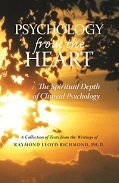 |
Psychological Healing
in the Catholic Mystic tradition |
True Christian
Identity
In Confronting
Evil |
How to Turn the
Emotional Wounds
of Daily Life Into
Psychological Growth. |
The Psychological
and
Spiritual Remedy
For Our Cultural
Disintegration |
The Struggle For
Psychological
and Spiritual
Growth |
Collected Texts
About the Spiritual Depth of
Clinical Psychology |
More information |
More information |
More information |
More information |
More information |
More information |
Desire
and
Distraction
|
Fear
|
Stopping
Smoking
|
Borderline
Personality
Disorder
|
Catholic
Compassion
|
Reverence
for the
Holy Eucharist
|
 |
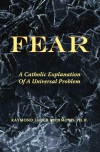 |
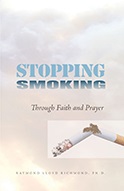 |
 |
 |
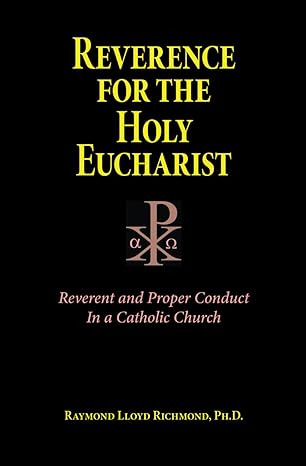 |
A Catholic Perspective
On Behavioral Change
and Its Subversion |
A Catholic Explanation
Of a Universal
Problem |
Through
Faith
and
Prayer |
Healing
the
Rage |
When They Tell You
That the Moral Teachings of the
Catholic Church
Are Wrong |
Reverent and
Proper Conduct in
a Catholic Church |
More information |
More information |
More information |
More information |
More information |
More information |
|











